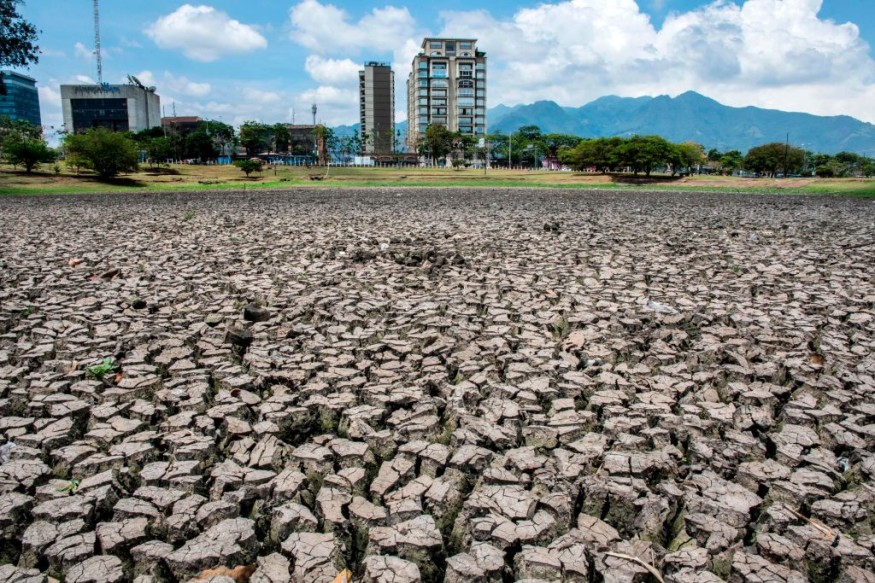
The United Nations has warned that climate breakdown has begun as the World Meteorological Organization (WMO) recorded the world's warmest Northern Hemisphere summer on record.
The WMO reported, citing data from the European Union's Copernicus Climate Change Service (C3S), that this month was the warmest August on record "by a large margin" and the second hottest ever month after July 2023.
The month of August was expected to be 1.5 degrees Celsius (2.7 degrees Fahrenheit) higher than the pre-industrial norm. It also saw the greatest global monthly average sea surface temperature on record, nearly 21 degrees Celsius (69.8 degrees Fahrenheit).
According to C3S, 2023 is the second-hottest year on record, trailing only 2016.
"The dog days of summer are not just barking, they are biting," UN Secretary-General Antonio Guterres said in a statement.
Human-caused climate change
Scientists blame ever-warming human-caused climate change on the consumption of coal, oil, and natural gas, with a boost from the natural phenomenon El Nino, which is a brief warming of sections of the Pacific Ocean that affects weather around the world.
Typically, an El Nino, which began earlier this year, adds extra heat to global temperatures, but this is especially true in its second year.
"What we are observing, not only new extremes but the persistence of these record-breaking conditions, and the impacts these have on both people and planet, are a clear consequence of the warming of the climate system," C3S's Climate Change Service Director Carlo Buontempo said.
Laura Patterson, the WMO's representative to the U.N, believes that this is just a beginning and expected that next summer would be hot again.
She stated that in order to decrease the global warming trend, people must cut carbon emissions from the use of fossil fuels and move toward renewable energy.
Read Also : Earth "Still on the Brink of Climate Catastrophe" Despite Multiple International Efforts
Air quality
The WMO also said that climate change has a quantifiable impact on air quality and thus human health, implying that the two must be addressed jointly rather than separately.
In the 2023 WMO Air Quality and Climate Bulletin, it focuses on the harm caused by heatwaves.
It states that high temperatures are not only dangerous in and of themselves, but they also cause harmful pollution.
The research cites examples such as the northwestern United States, where heat waves sparked wildfires, and Europe, where heat waves were accompanied by desert dust invasions.
Both resulted in hazardous air quality in 2022.
According to the report's case studies, parks and tree-covered areas within cities can enhance air quality, absorb carbon dioxide, and lower temperatures, benefiting residents.
Guterres, meanwhile, said G20 leaders have the ability to resolve a "spinning out of control" climate disaster and urged them to change global finance regulations that he described as obsolete and unfair.
He also urged the G20 leaders to commit to keeping the "1.5 degree goal alive," referring to the 2015 Paris Agreement goal of keeping global average temperature rise well below 2°C over pre-industrial levels, with a target of 1.5°.
"The climate crisis is worsening dramatically - but the collective response is lacking in ambition, credibility, and urgency," Guterres said in a speech in New Delhi, capital city of India, which is chairing the G20 this weekend.
Related Article : Climate Scientist Calls Fossil Fuel Companies to be Held Accountable for Years of Careless Emission
Related Video:
© 2026 NatureWorldNews.com All rights reserved. Do not reproduce without permission.





